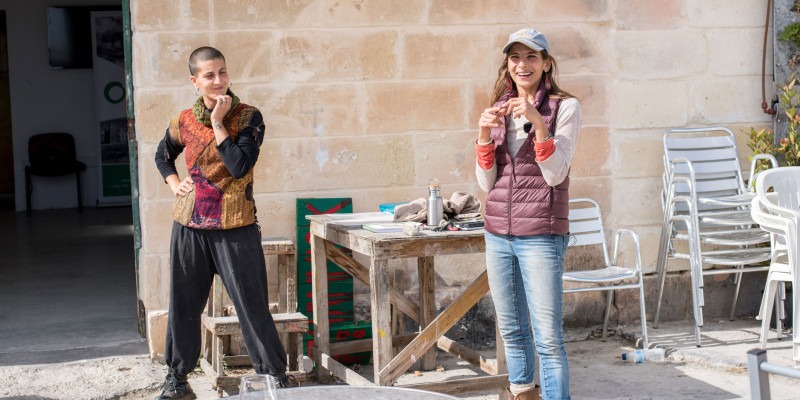Growing your own food – ever wondered how to do it? Last month, Young Friends of the Earth Malta ran a series of workshops with young people on everything from upcycling raised beds using wooden pallets, to growing, maintaining, and harvesting your crops.
The series was made up of four which taught people aged 13 to 30 how to upcycle pallet wood to create raised beds, how to grow plants from seeds, how to take care of their crops and maintain a garden as well as how to create a compost heap. Each session had a theoretical introduction with the rest of the session mainly taught with a hands-on approach.
Step 1: How to Build a Raised Bed from Pallets
Our first session was run by Pallet 42, a young start-up that upcycles reclaimed pallet wood to create unique furniture pieces that would otherwise end up being thrown away after one use. We had the pleasure of learning how to strip a wooden pallet to its frame and build it up again to make four raised beds for our Green Resource Centre in Floriana. We also slapped some wheels onto the raised beds so that we can move them about according to the season.
Step 2: Sowing & Planting
Our second and final sessions were run by The Veg Box, a small, organic farm that focuses on growing local and seasonal produce in the most sustainable way possible. They taught us how to choose what we should grow based on the season and type of growing space we have available in our homes. We sowed some seeds and planted seedlings in the raised beds which we made in the previous session. Emanuela from The Veg Box created a very unique layered system for our raised beds to ensure they don’t dry out and constantly have nutrients available to them.
Step 3: Composting
Our third session was run by Thrive Malta, who provide workshops and training on permaculture, composting and organic vegetable growing. We were fortunate enough to have Alexandra Cachia who taught us the basics of composting and how to build one in our own homes from scratch. We then proceeded to build a vermicompost (worm) bin for the community garden at our office.
Step 4: Crop Nutrition & How to Maintain A Garden
Our last session (also run by The Veg Box) taught us how to monitor our crops, how to understand if and what they are lacking, how to make our own fertilisers using natural ingredients as well as how to make our own homemade pesticides. We ended our first crop growing series with some fresh and delicious homemade smoothies using only produce grown by The Veg Box – they went down a real treat!
***


